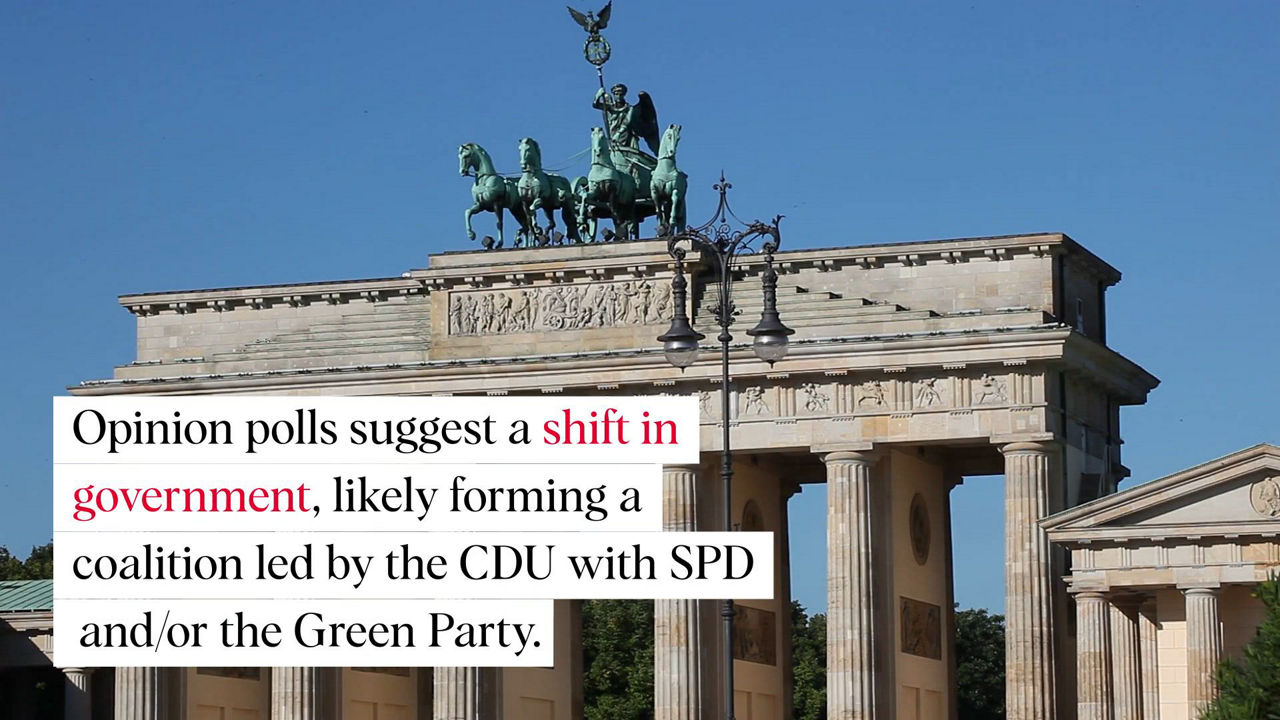Featured Topics
Featured Products
Events
S&P Global Offerings
Featured Topics
Featured Products
Events
S&P Global Offerings
Featured Topics
Featured Products
Events
S&P Global Offerings
Featured Topics
Featured Products
Events
Financial and Market intelligence
Fundamental & Alternative Datasets
Government & Defense
Professional Services
Banking & Capital Markets
Economy & Finance
Energy Transition & Sustainability
Technology & Innovation
Podcasts & Newsletters
Financial and Market intelligence
Fundamental & Alternative Datasets
Government & Defense
Professional Services
Banking & Capital Markets
Economy & Finance
Energy Transition & Sustainability
Technology & Innovation
Podcasts & Newsletters
BLOG — Jan 29, 2025
Our country risk experts provide insight into events that could impact the geopolitical landscape in February.


Our country risk experts provide insight into events that could impact the geopolitical landscape in February.
Germany will hold an early general election on Feb. 23, 2025, more than six months before the regular end of the current administrative term. All recent opinion polls suggest that the electoral outcome will trigger a change of government and produce a new coalition, likely to be led by the current main opposition party, the CDU, and be formed in collaboration with either current Chancellor Prime Minister Olaf Scholz’s SPD and/or the Green Party as junior partner(s). Such an alliance would then be led by CDU leader Friedrich Merz as Germany’s next Chancellor. The government formation process is likely to involve multiple rounds of — at times challenging — negotiations. Given multiple simultaneous domestic, geopolitical and security challenges, political parties participating in post-election talks will face strong pressure to come to a swift agreement to limit Germany’s potential exposures during government transition. It is likely that a new administration will be formed in the second quarter of 2025. While foreign, defense and trade policy direction are unlikely to be altered significantly, the new government is likely to introduce changes affecting other major policy areas, notably including taxation, social and welfare expenditure, energy and migration. Setting public spending priorities and determining how to cover budget deficits while also boosting public and encouraging private investment across a broad span of areas will remain very difficult to reconcile and a likely point of contention in the next term.
Feb. 24, 2025 will mark the third anniversary of the Russia’s invasion of Ukraine. The European Union (EU) is very likely to impose further sanctions to coincide with the anniversary. On Dec. 16, 2024, the EU adopted its 15th package of sanctions against Russia since the invasion. The 16th package, if adopted, will probably focus on those sectors of Russia’s economy currently deemed to be insufficiently covered by prior sanctions packages. This would possibly include aluminum, although this is not confirmed. Although the war remains in stalemate, the re-election of Donald Trump as US president is the single development with the greatest potential to change the course of the war. The impact is twofold: either as an indirect consequence of the reduction or withdrawal of US political and military support, or through Trump’s aspirations to act as a mediator. Although the baseline “stalemate” envisages a ceasefire agreement, which would probably be repeatedly violated by both sides but without significant territorial gains, a definitive lasting peace deal remains unlikely at least in the coming months.
Ecuador will hold presidential and legislative elections on Feb. 9. The two main presidential candidates are Daniel Noboa, who is seeking re-election representing National Democratic Action, and Luisa González from the Citizen Revolution Movement. There are 14 other candidates standing and Ecuadorians will also elect 151 National Assembly members, 14 more than in the previous Assembly. Pre-election polls indicate a close presidential contest between the two leading candidates, with first-round margins below three percentage points, making a second round highly likely. This would be scheduled for April 13. Congress is likely to be fragmented after the election, with delays to or dilution of planned policy likely for either leading candidate, if elected. Noboa’s main policy priorities include security, which is likely to imply he would continue the state of emergency and deploy the military to combat criminal gangs and high crime rates, fiscal consolidation and maintaining policies encouraging trade. González is more likely to favor a greater state role to combat energy shortages, increased social spending and tackling insecurity by supplying more resources to local education and rehabilitation centers in crime hotspots, while easing Noboa’s fiscal austerity policy. Both candidates support mining activities in the country, although González is more likely to enforce stricter sectoral regulations than Noboa, and take stronger measures against illegal mining. After Ecuador’s economy was severely hit by extended electricity shortages in the second half of 2024, S&P Global Market Intelligence forecasts project a 0.4% decline in real GDP for 2024, with recovery to 1.0% forecast for 2025.
Want to understand the global landscape in 2025? Click here for our special report, Power Plays in 2025
This article was published by S&P Global Market Intelligence and not by S&P Global Ratings, which is a separately managed division of S&P Global.